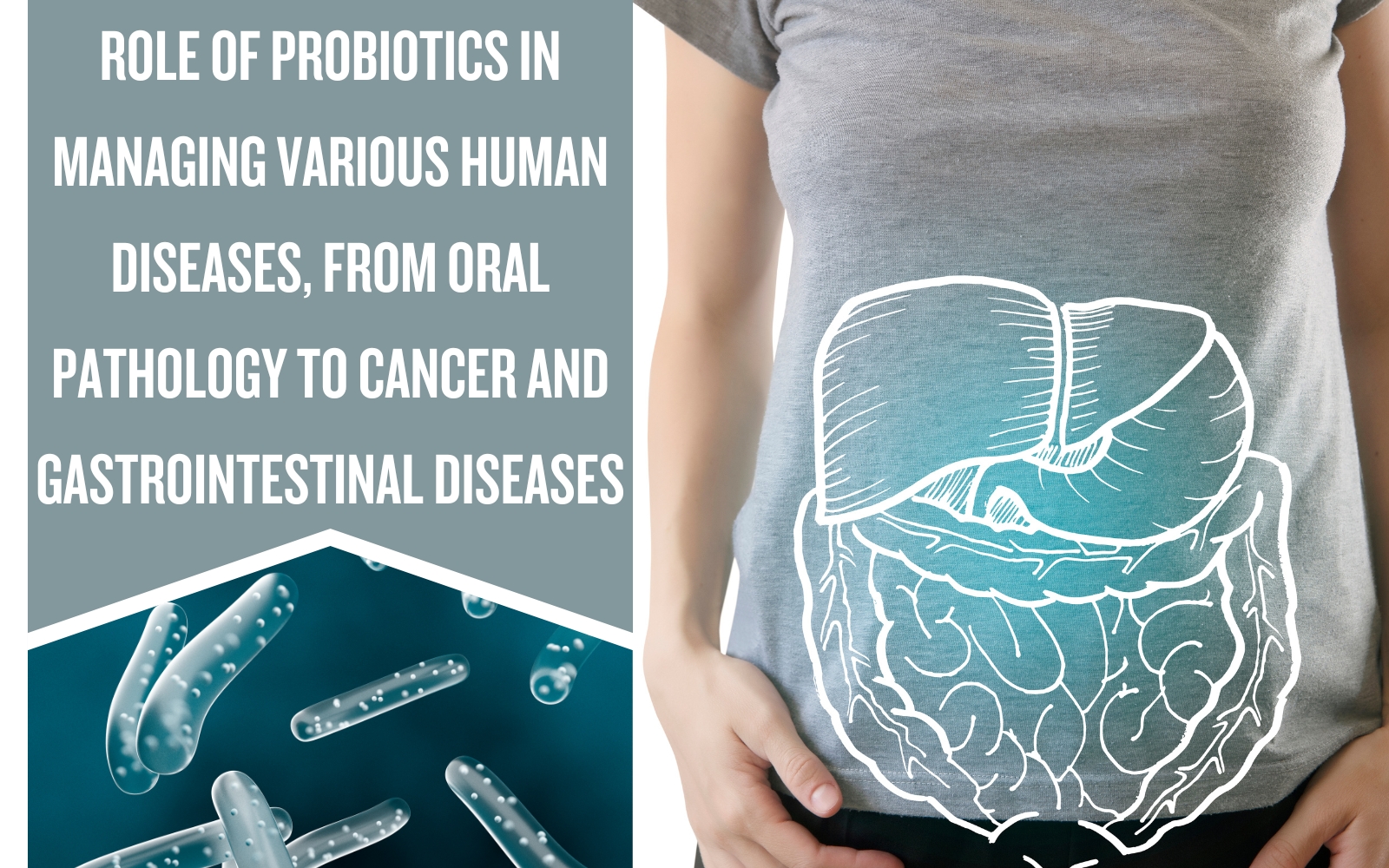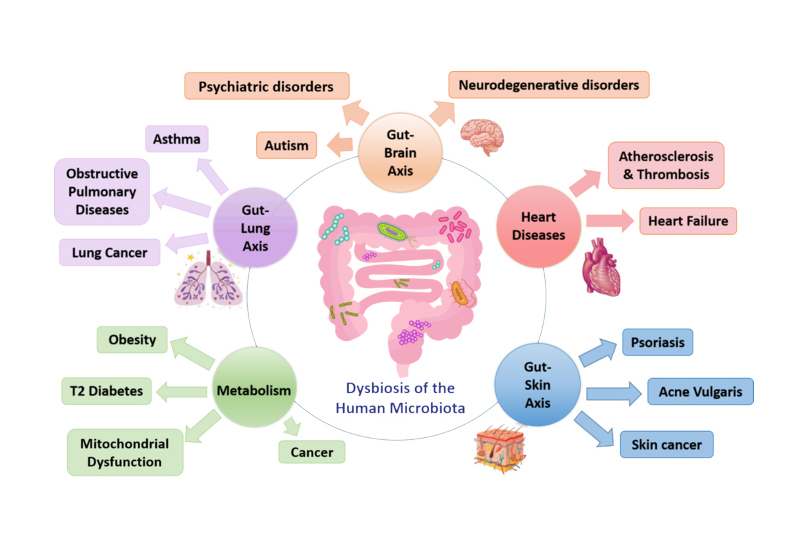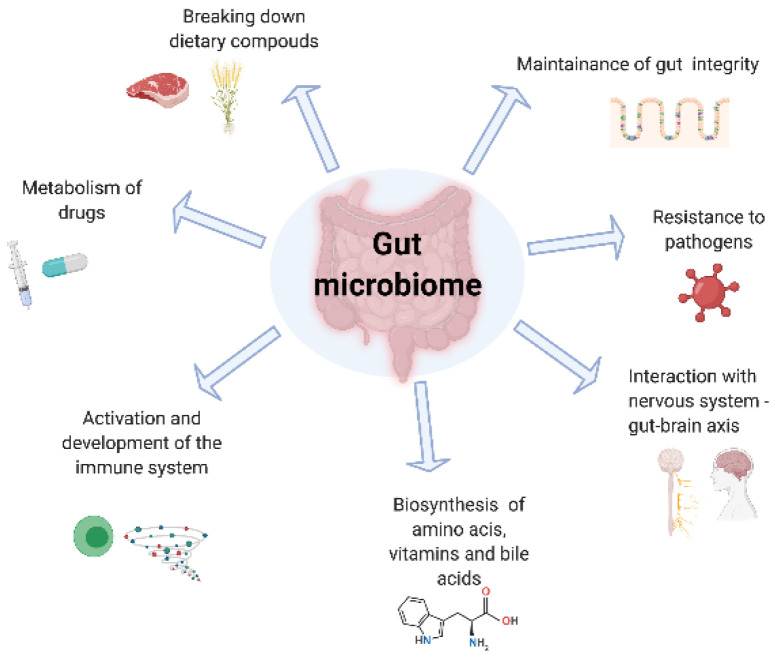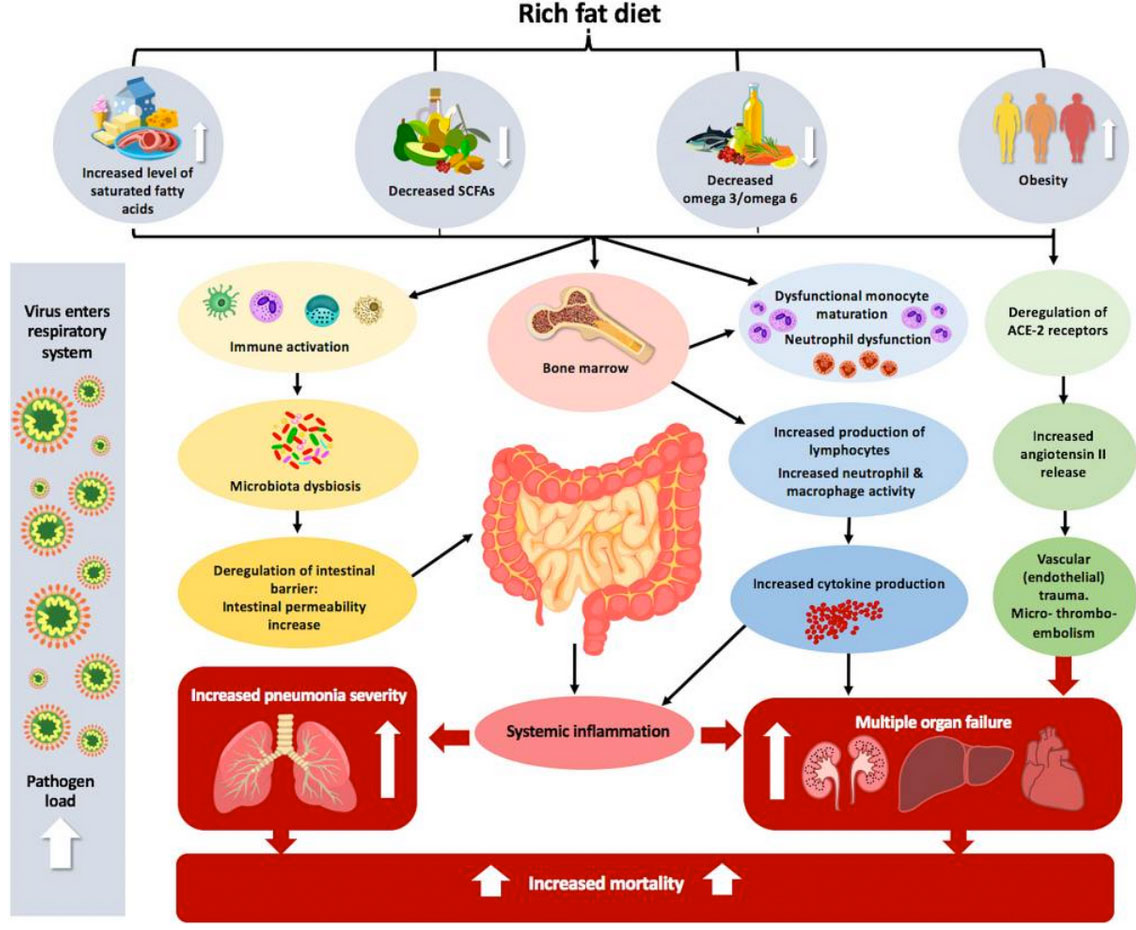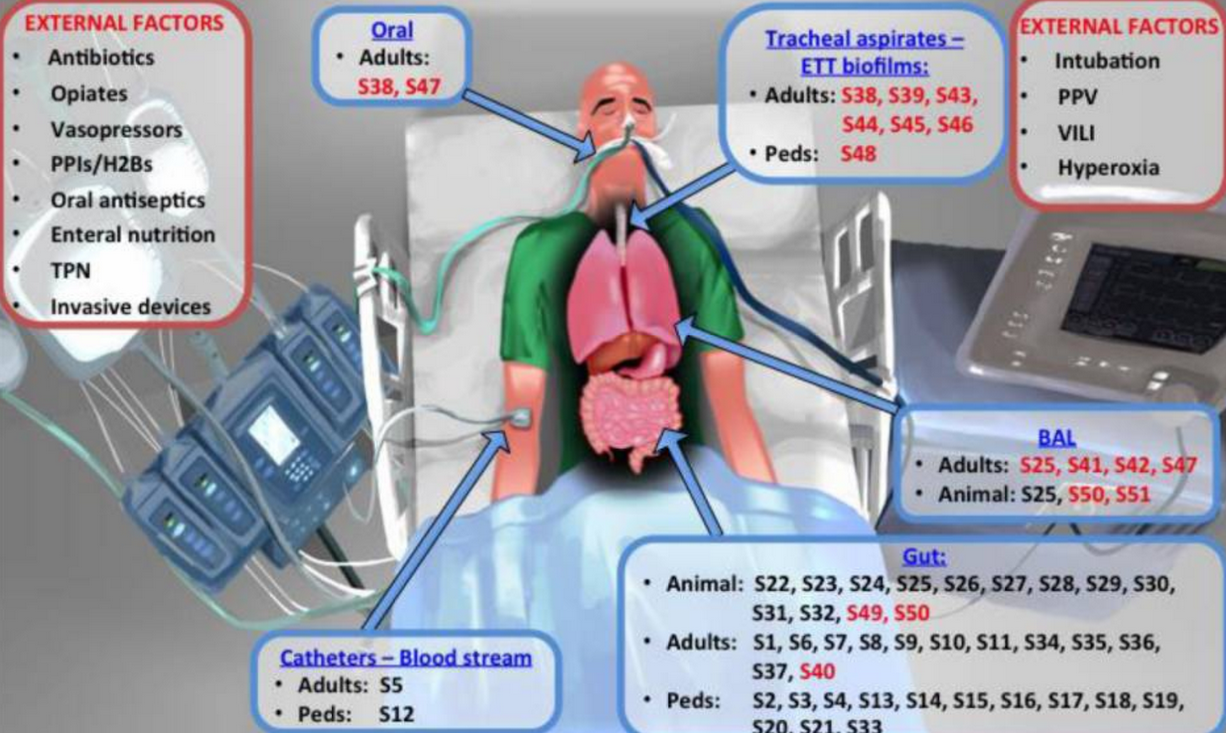Probiotics play a vital role in human health by maintaining the balance of gut microbiota and offering numerous health benefits, including antimicrobial, anti-inflammatory, and antioxidant properties. The review, "Role of Probiotics in Managing Various Human Diseases," explores the potential of probiotics in preventing and treating a range of diseases, including gastrointestinal disorders, oral health issues, and even cancer.
Oana-Alina Petrariu,,
September 19, 2024
The gut microbiota (GM) comprises billions of microorganisms in the human gastrointestinal tract. This microbial community exerts numerous physiological functions. Prominent among these functions is the effect on host immunity through the uptake of nutrients that strengthen intestinal cells and cells involved in the immune response.
Gael Urait Varela-Trinidad,
February 09, 2023
Why do we need dietary fiber?
Dietary fiber is an essential component of a healthful diet, with research linking a high fiber diet with reduced risks of many health conditions, including cardiovascular disease, type 2 diabetes, and certain cancers.
medicalnewstoday.com,
July 14, 2022
A yeast infection is caused by the overgrowth of a yeast called Candida. Candida is a normal part of the vaginal microbiome, a collection of microorganisms in the vagina. Bacteria keeps yeast in check. When this balance gets thrown off, a yeast infection
The probiotic strains Lacticaseibacillus rhamnosus (LGR-1) and Lactobacillus reuteri (LRC-14) have been shown to inhibit the growth of Candida glabrata, a strain of Candida that can cause yeast infections.
Julia Knox,
April 14, 2022
There are several different types of GI diseases that can affect the health of your digestive tract and how well your body digests food. The two main types of GI disease—functional and structural—are different, but can present with similar symptoms.
For the most part, most GI diseases are manageable, though they can present with debilitating symptoms and a lower quality of life.
Angelica Bottaro,
April 06, 2022
The gut microbiome has been implicated in a range of diseases and there is a rapidly growing understanding of this ecosystem’s importance in inflammatory bowel disease. We are yet to identify a single microbe that causes either ulcerative colitis (UC) or pouchitis, however, reduced microbiome diversity is increasingly recognised in active UC.
Jean-Frédéric LeBlanc, Jonatha,
February 17, 2022
5 Foods that Fight Fatigue and Fill You with Energy
With the high demands of work and family, many adults experience fatigue as a result of stress and poor eating habits.
Christina,
August 12, 2021
Importance of Dietary Changes During the Coronavirus Pandemic: How to Upgrade Your Immune Response
The new coronavirus pandemic continues to spread causing further public health, social, and economic issues. The disparities in the rates of death between countries poses questions about the importance of lifestyle habits and the immune status of populations. An exploration of dietary habits and COVID-19-related death might unravel associations between these two variables.
Ali Chaari, Ghizlane Bendriss, D,
March 04, 2021
Girish Bharadwaj,
March 01, 2021
Authors: Georgios D Kitsios, MD, PhD, Michael J Morowitz, MD, Robert P Dickson, MD, Gary B. Huffnagle, PhD, Bryan J McVerry, MD, and Alison Morris, MD, MS,
The advent of molecular, culture-independent techniques to study micro-organisms revealed that the human host harbors approximately 40 trillion microbes, including bacteria and their phages, viruses, fungi and archaea.
Georgios D Kitsios, MD, PhD,
February 18, 2021

